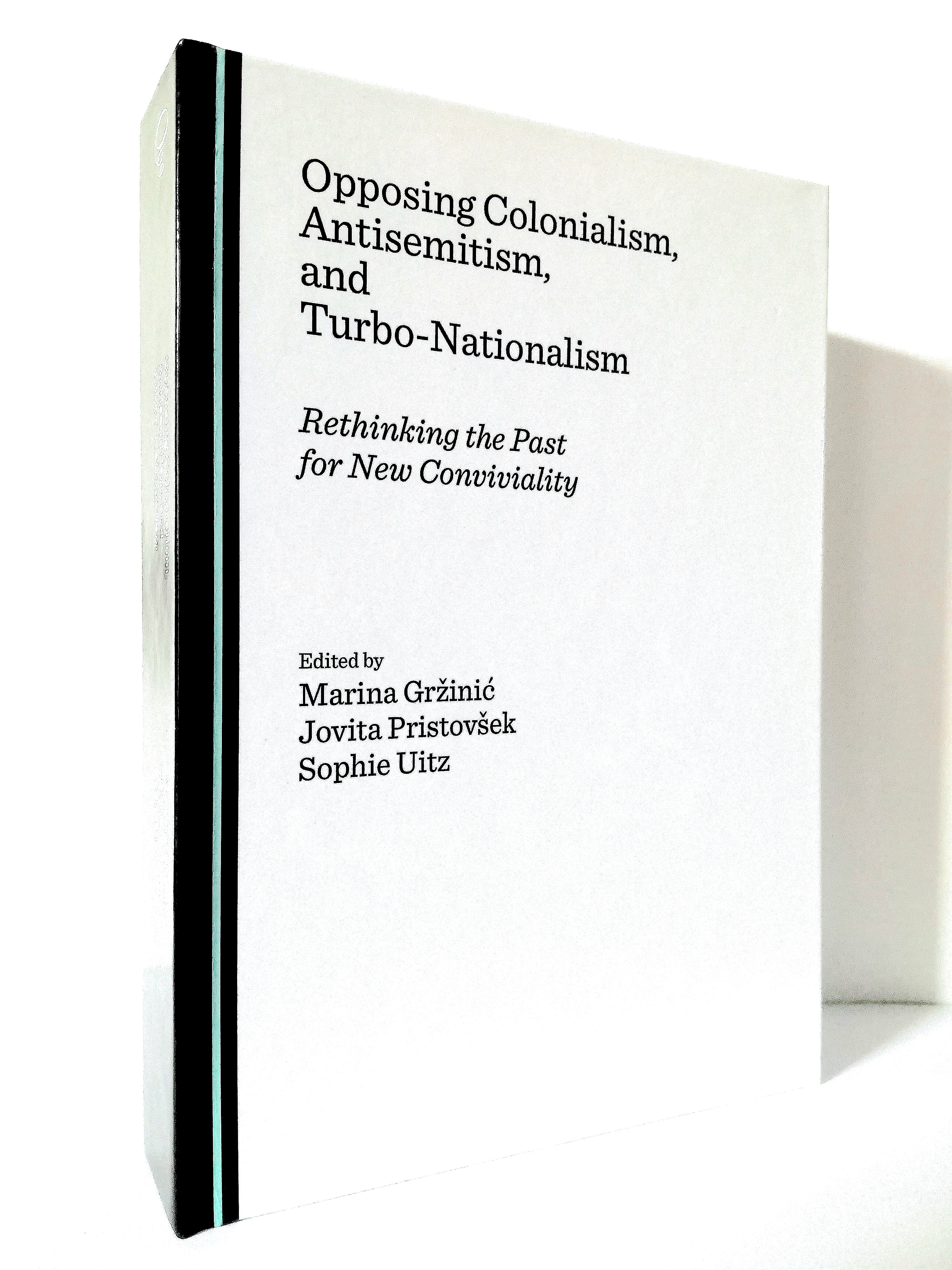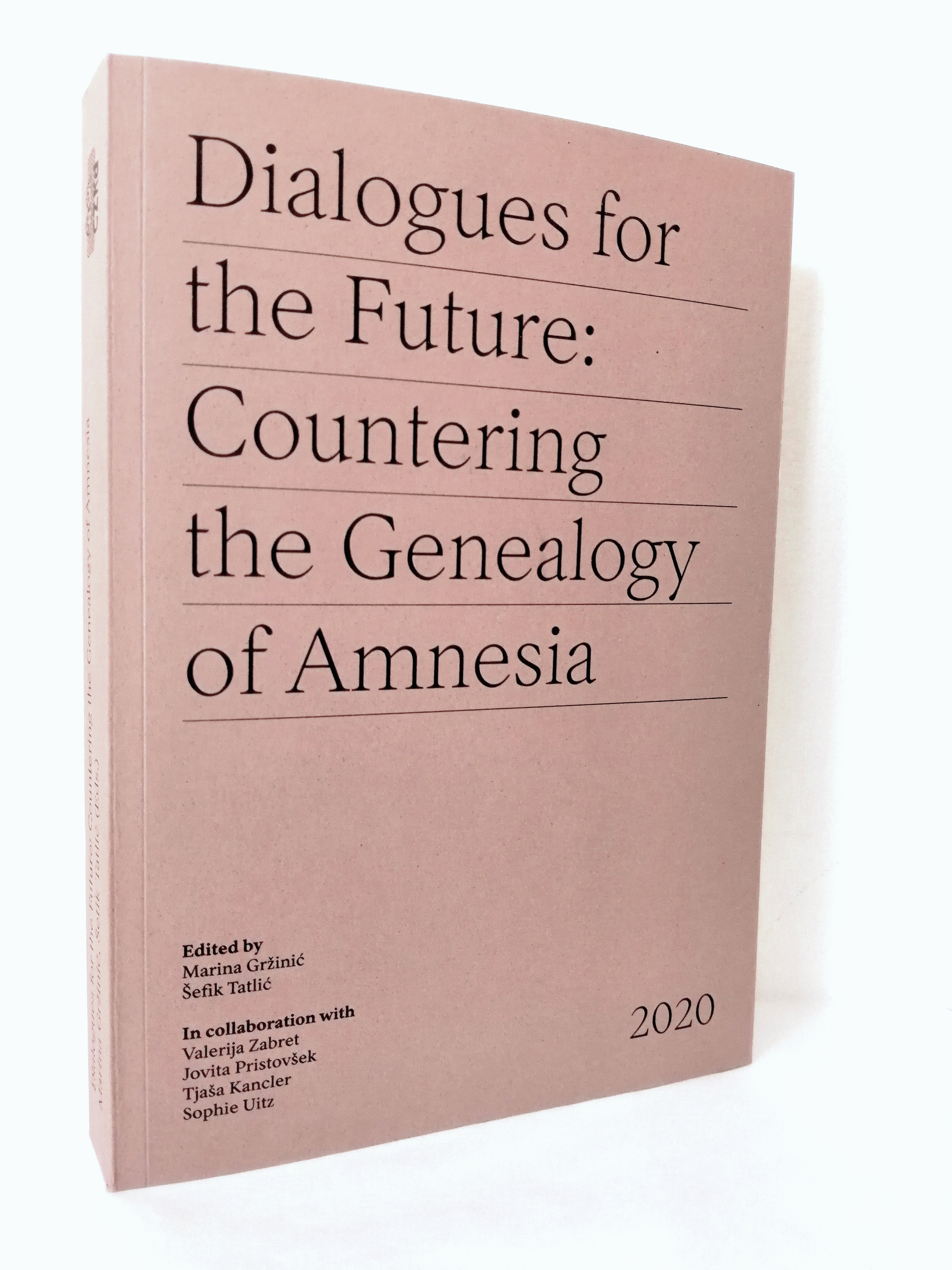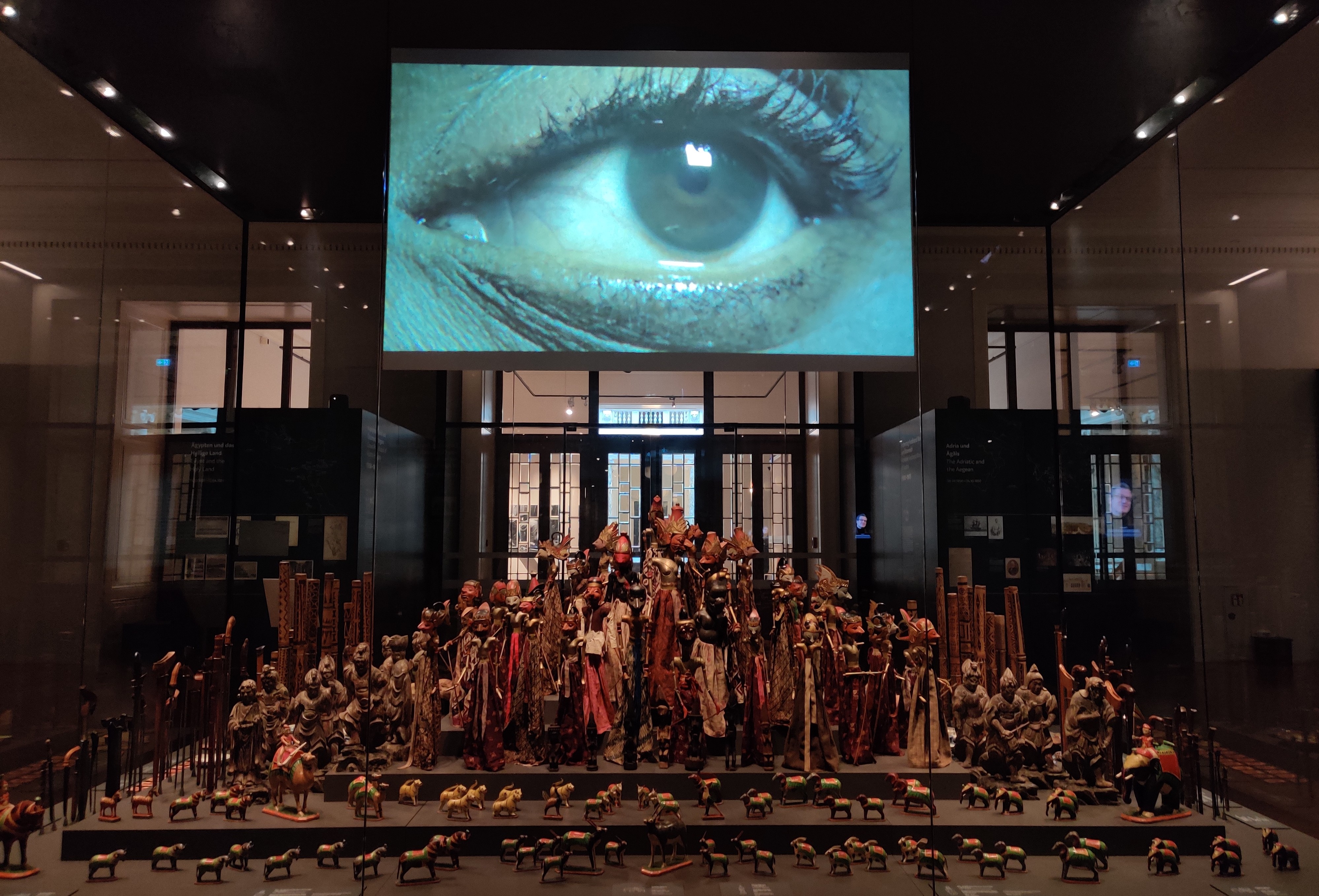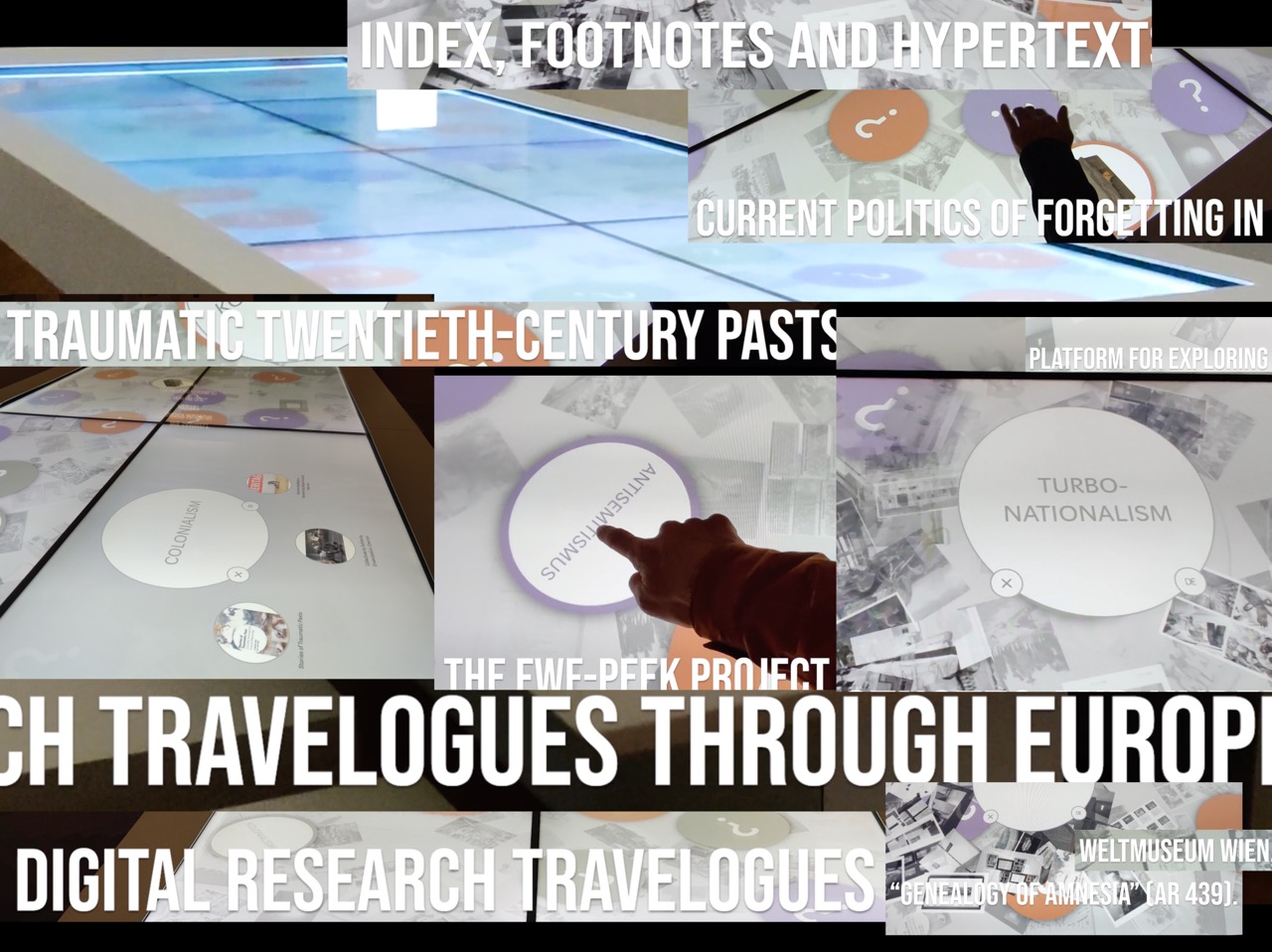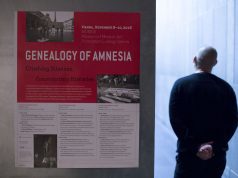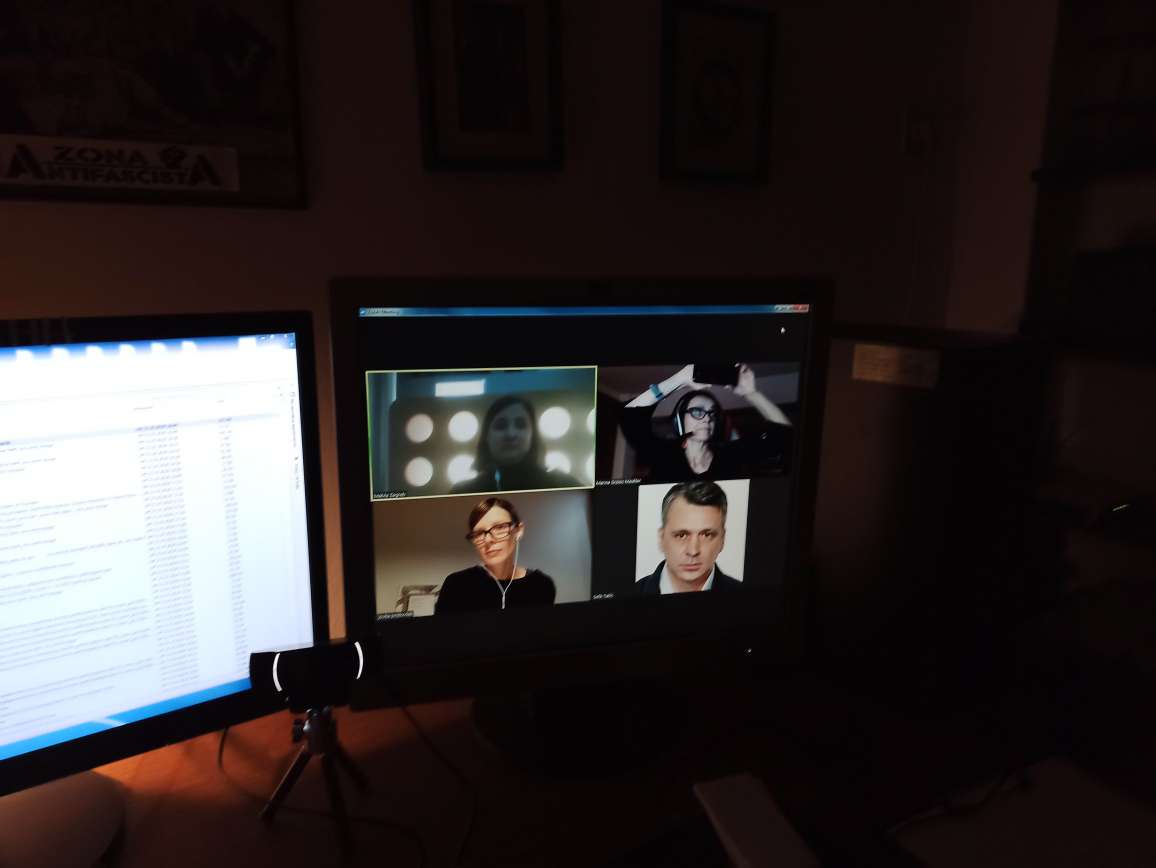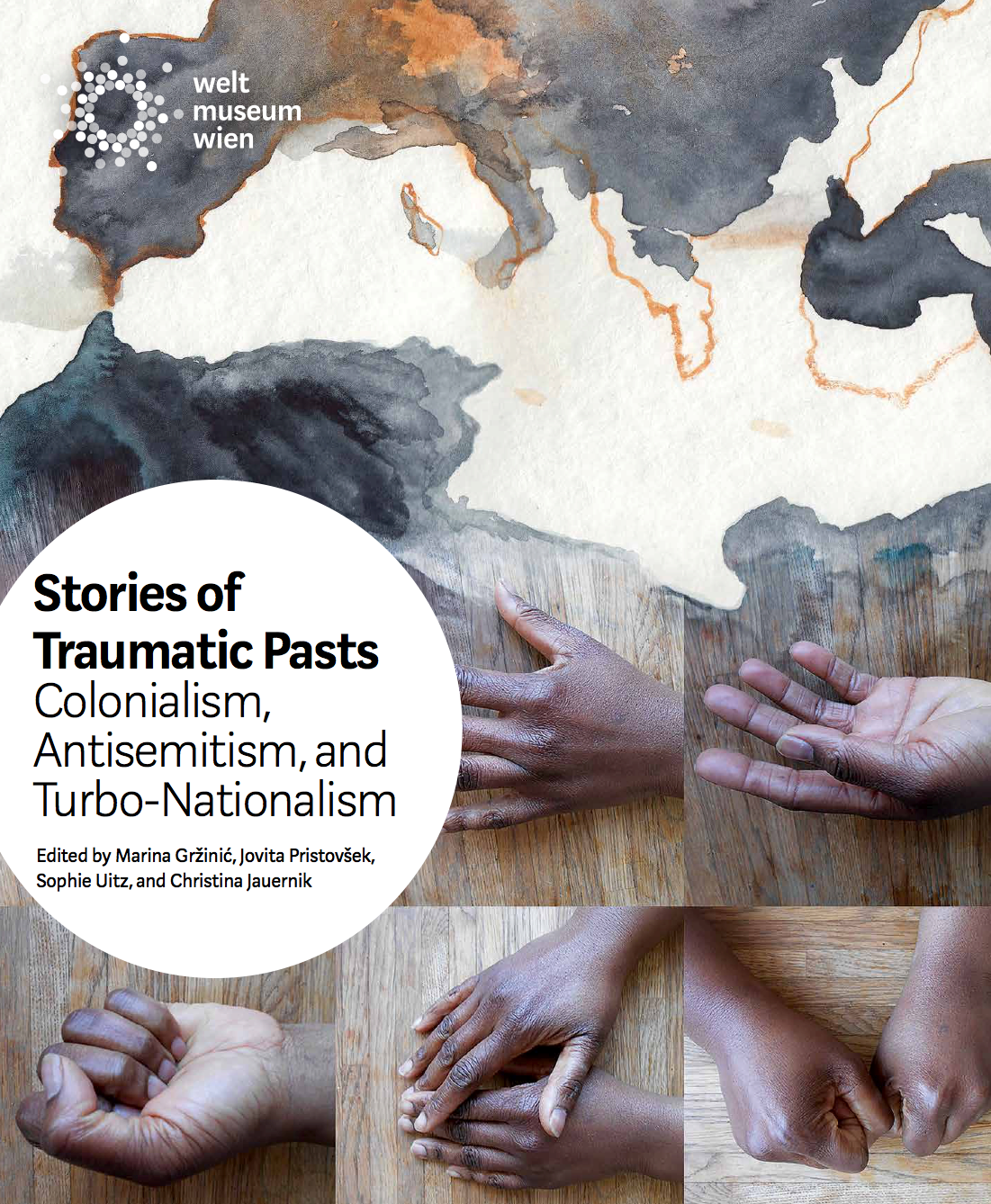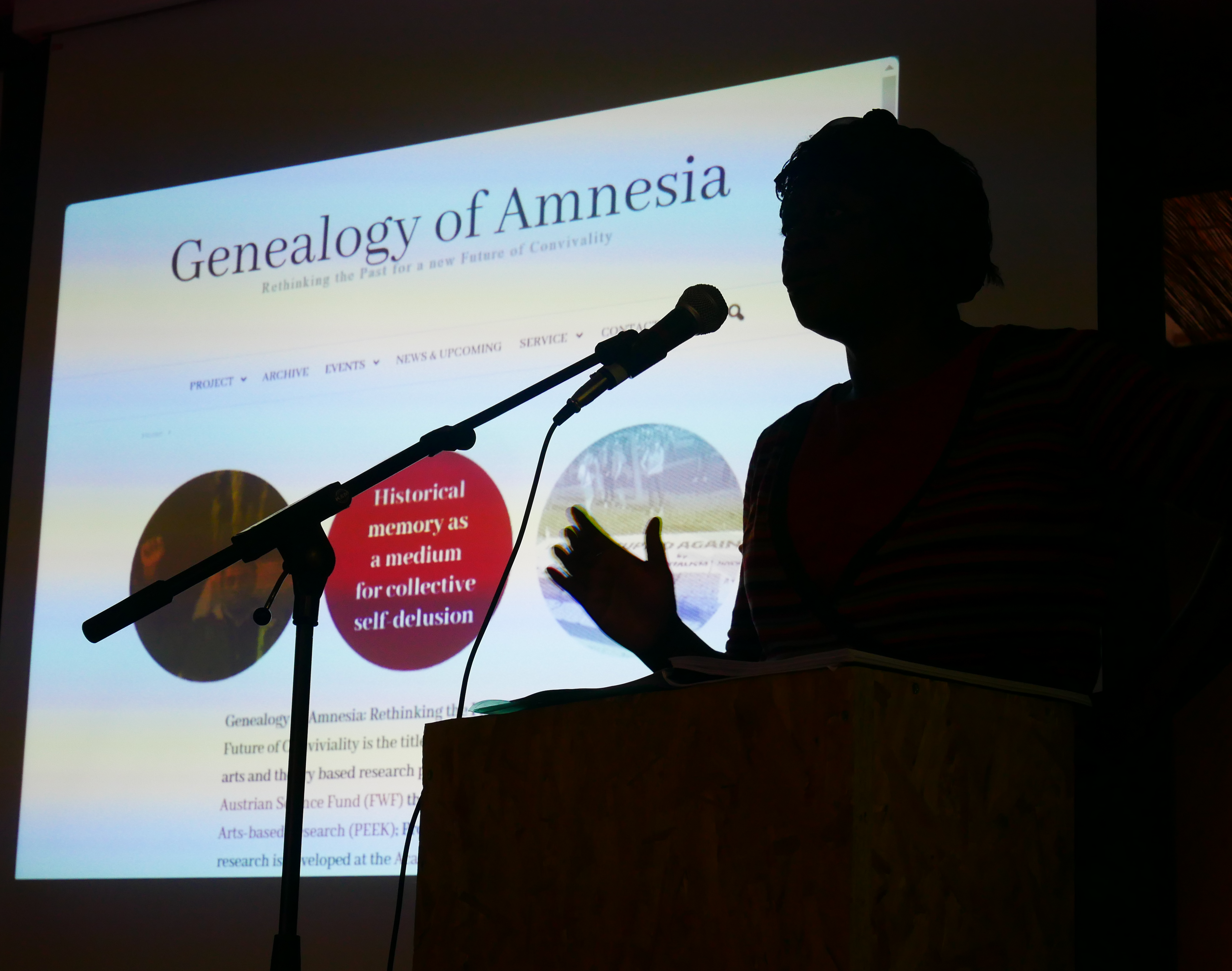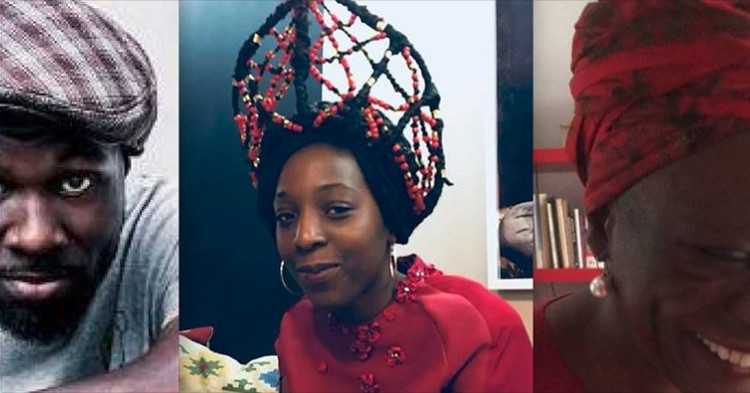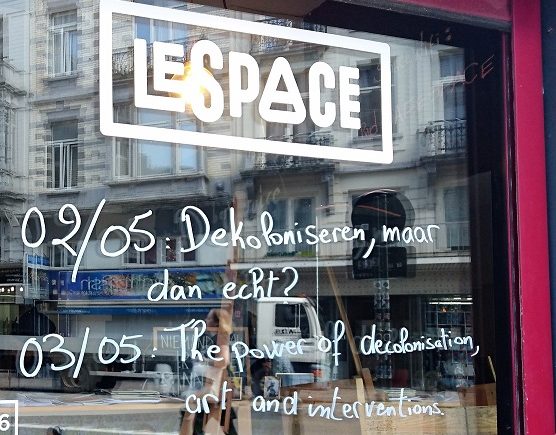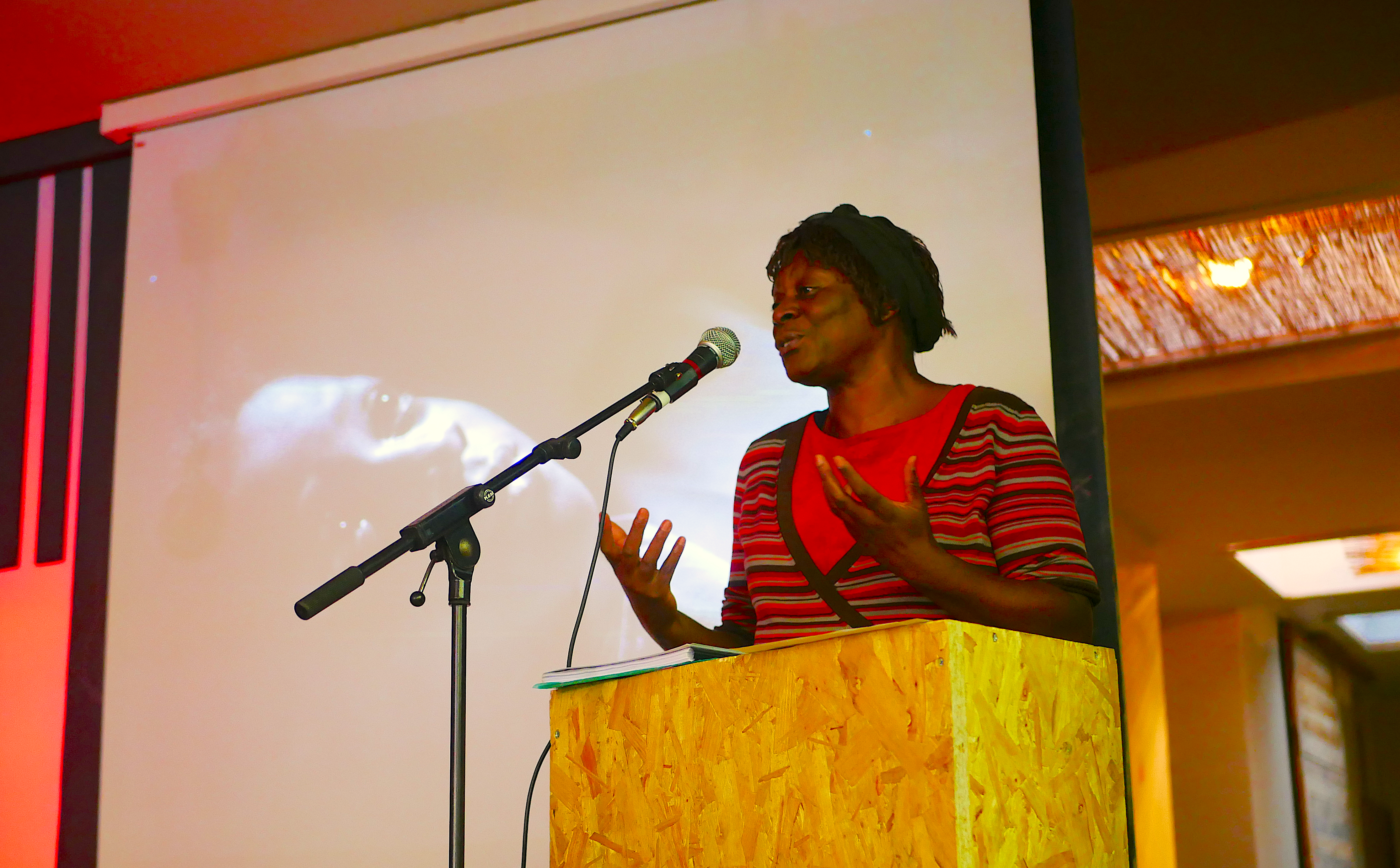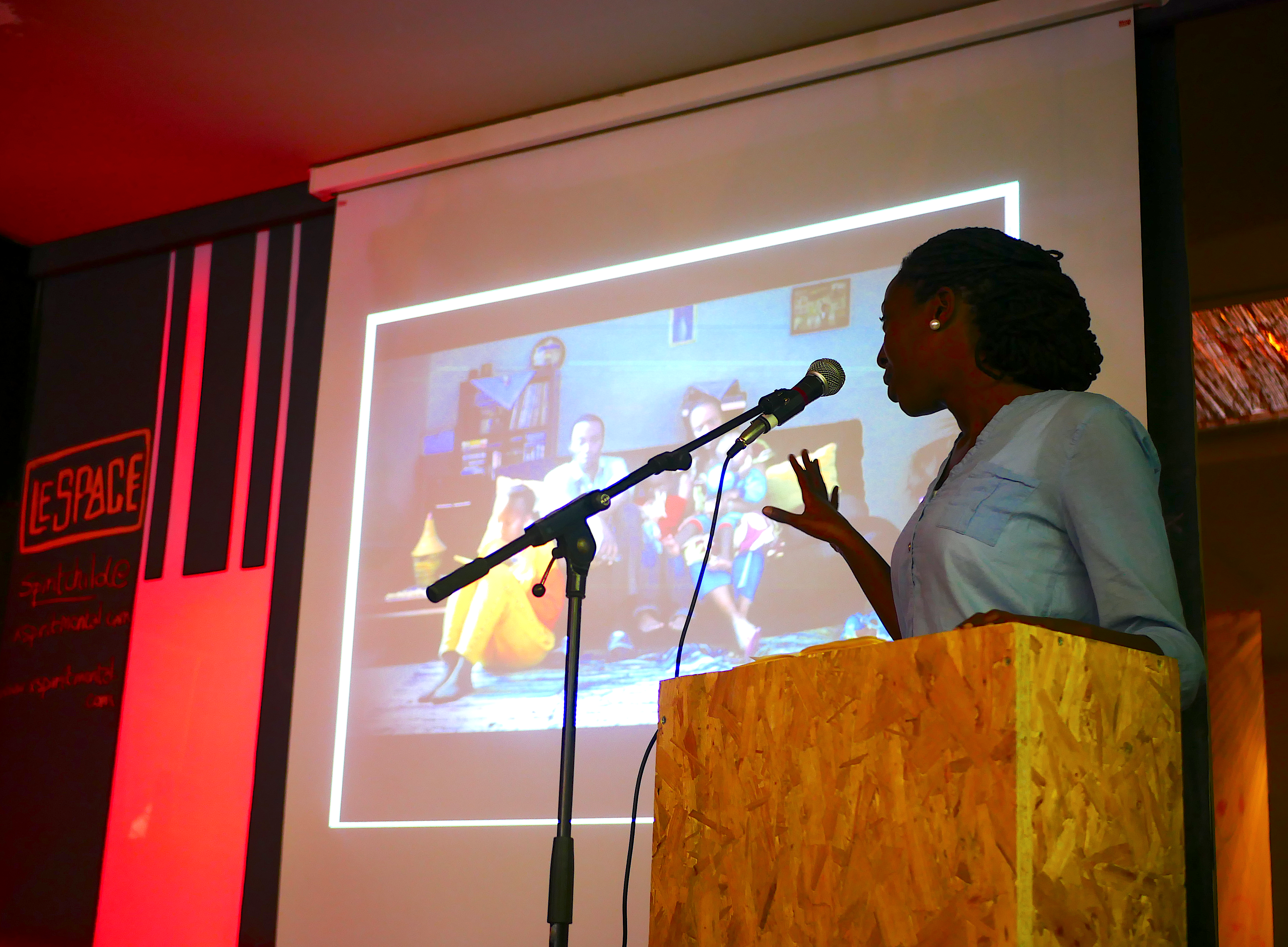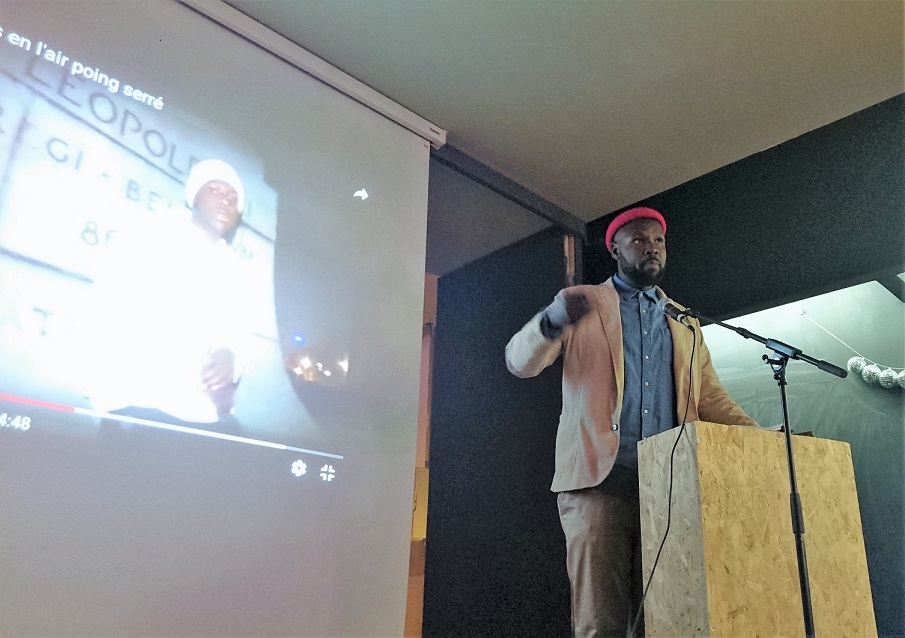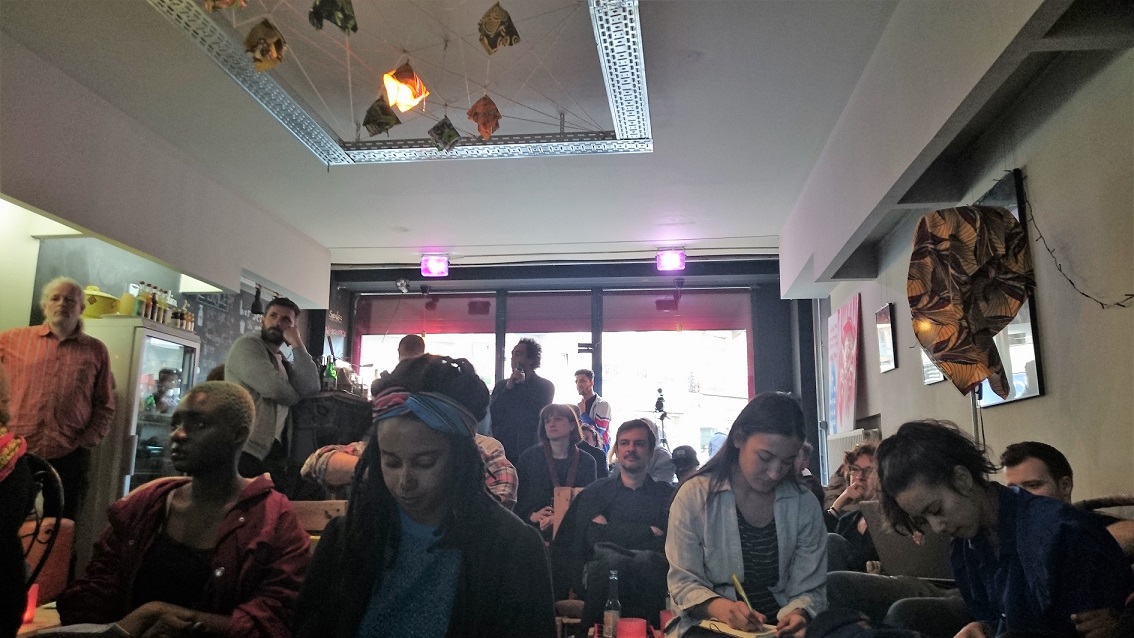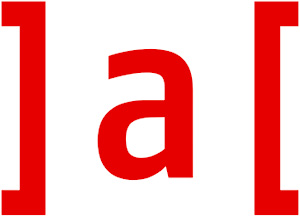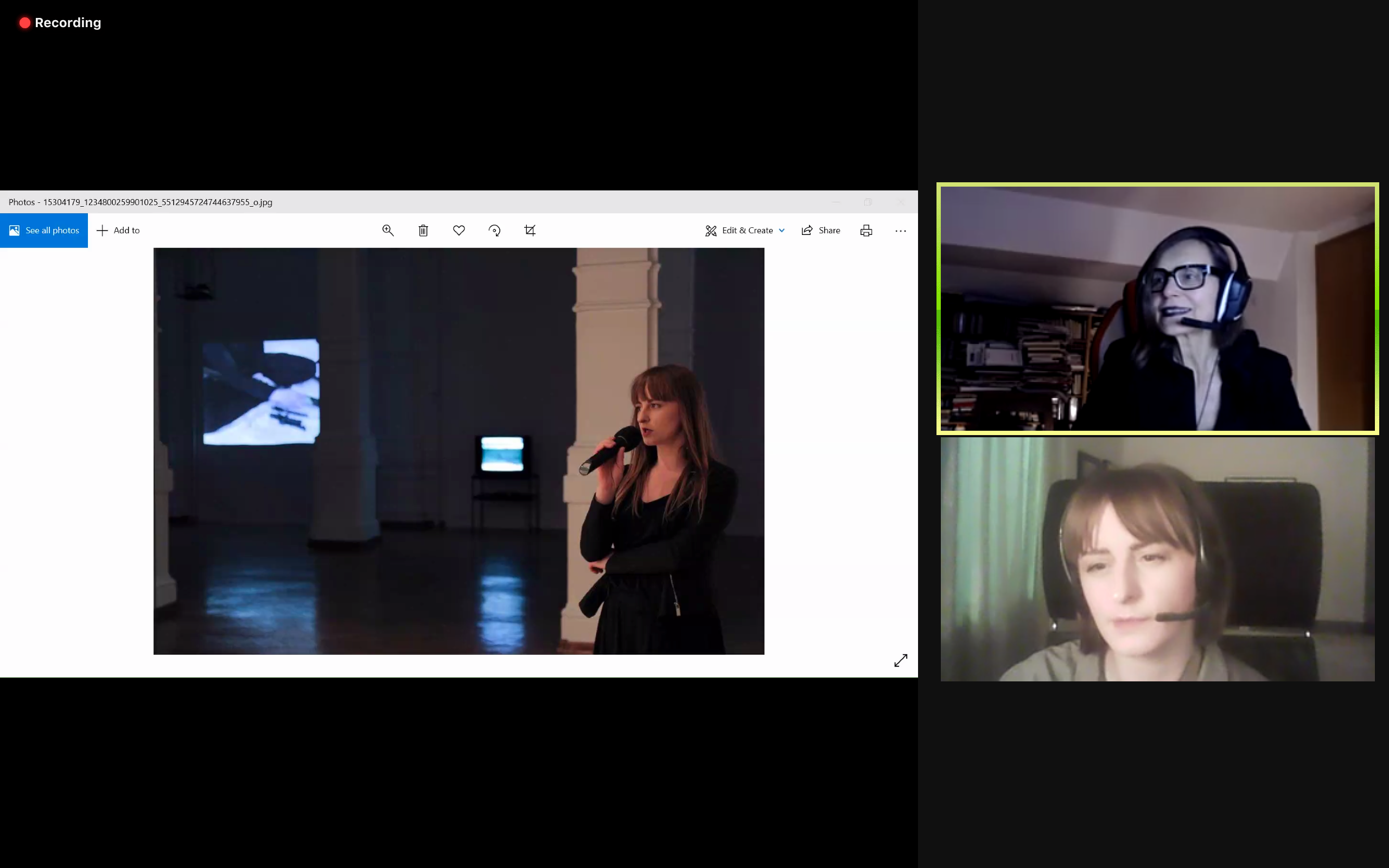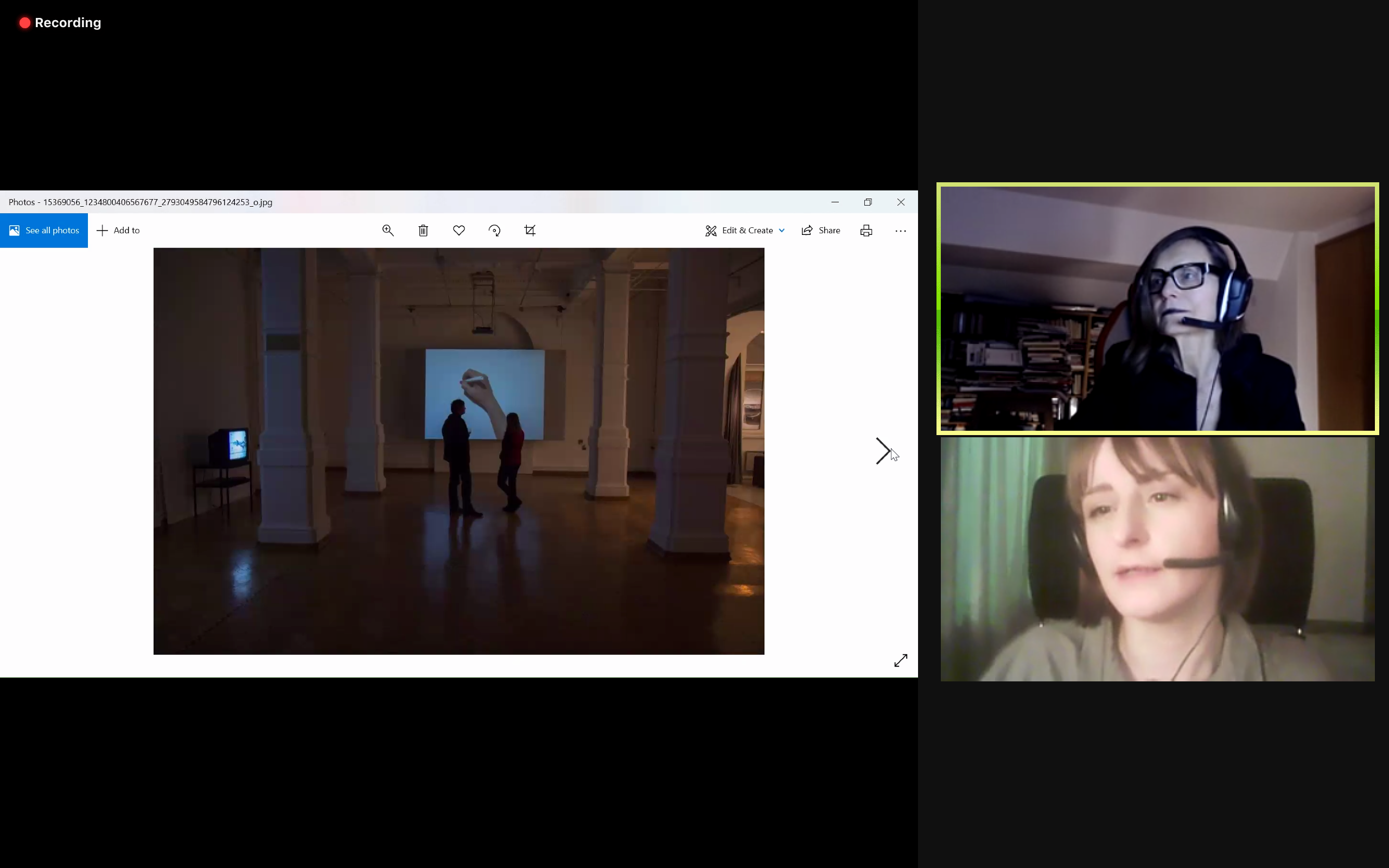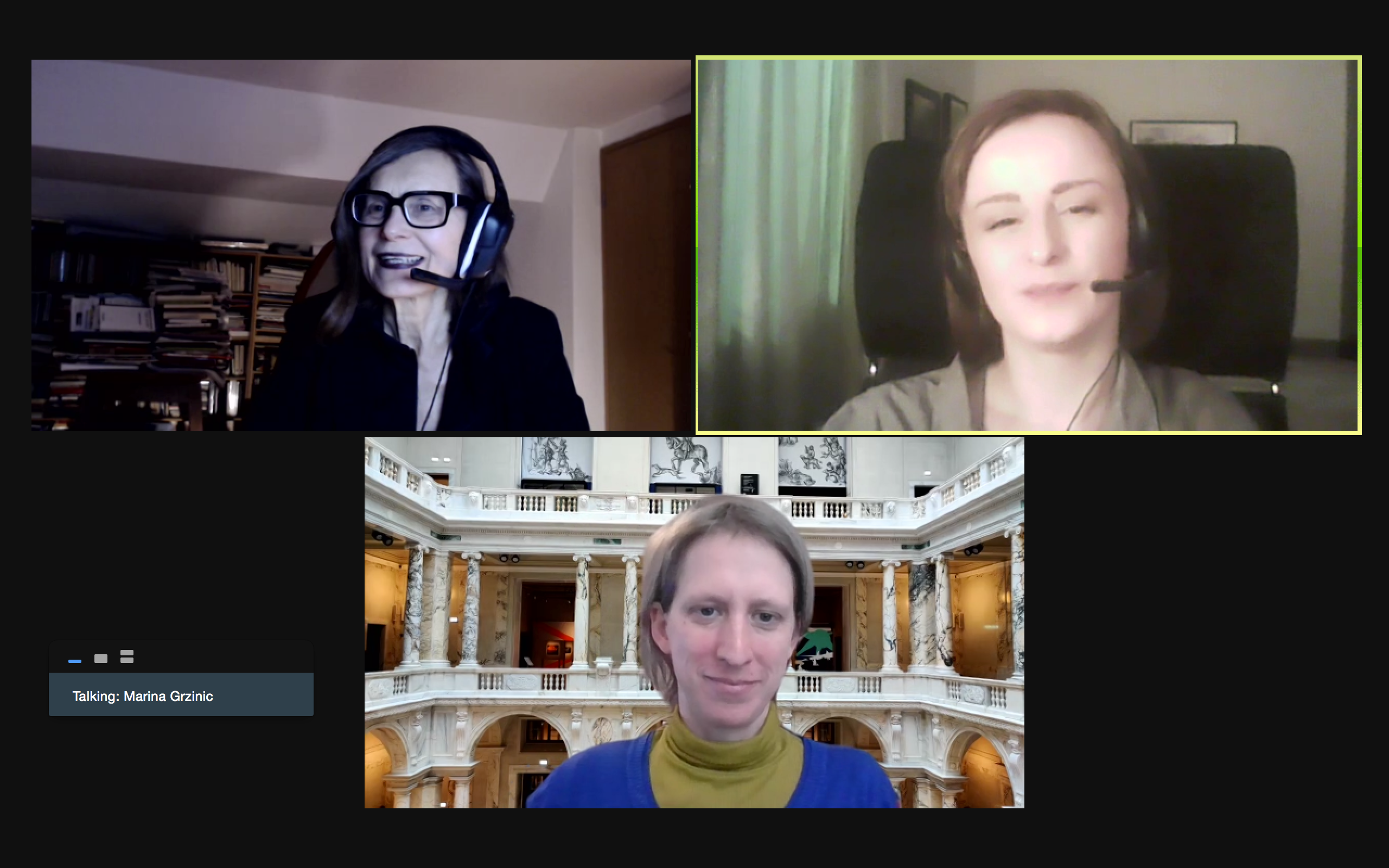A series of three lectures by Marina Grzinic and Sophie Uitz is held during the summer term 2018 at the Post-Conceptual Art Practices study programme (Vienna Academy of Fine Arts). Each of the lecture includes a screening of documentary film and introduces one of the three research territories of the “Genealogy of Amnesa” to the students.
Part I
Belgian Colonialism in the Congo
23 April 2018, 4-7 PM
Presentation of the research project “Genealogy of Amnesia: Rethinking the Past for a New Future of Conviviality”, by Marina Grzinic and Sophie Uitz.
Introduction, screening and discussion of “King Leopold’s Ghost” (2006, 108min, documentary) by Pippa Scott and Oreet Rees – a documentary about the exploitation of the Congo by King Leopold II of Belgium, based on the book by Adam Hochschild King Leopold Ghost from 1998.
Part II
The Yugoslavian War
14 May 2018, 4-7 PM
Introduction, screening and discussion of Valentini Areh’s documentary “Radovan Karadzic’s Secret Plans” (2016, 51min, documentary for television).
The TV film shows newly retrieved materials and accounts obtained at the trial of Radovan Daradzic at the International Criminal Tribunal for the former Yugoslavia, Hague Tribunal. The documentary was premiered two days before the final sentence to Karadzic at the Haag Tribunal, 24 March 2016. Karadzic was sentenced to fourty years for Srebrenica genocide in BiH, Amont other criminal acts.
Valentin Areh is a Slovenian journalist, war correspondent and writer. He participated in 1991 as a soldier in the short Slovenian war for independence. He subsequently attended Ljubljana University, studying history and sociology. Areh has fiftenn years of experience as a war correspondent in places such as Croatia, Bosnia, Kosovo, Chechnya, Afghanistan and Iraq. He was one of the few journalists to remain in Kosovo during the Kosovo War of 1999 and he survived a tortuous escape out of the country during NATO’s war to expel Serbian forces.
Part III
Remembrance and oblivion of Nazi crimes in Austria
4 June 2018, 4-7 PM
Screening of “Night and Fog” (French original title: Nuit et brouillard; 1956, 32min, documentary short film). Directed by Alain Resnais, it was made ten years after the liberation of Nazi concentration camps. The title is taken from the notorious “Nacht und Nebel” (German for “Night and Fog”) program of abductions and disappearances decreed by the Nazis on 7 December 1941.
Screening of “East of War” (German original title: Jenseits des Krieges; 1996), a film by Ruth Beckermann (cinematography Peter Roehsler, editing Gertraud Luschützky).
White-tiled rooms, neon lighting; on the walls black and white photographs documenting the atrocities committed by the German Wehrmacht on the Eastern Front in WW2. Against this background former soldiers talk about their experiences beyond the bounds of “normal” warfare. An uncompromising film on remembrance and oblivion. Ruth Beckermann’s film doesn’t duplicate the exhibition, but begins where it ends: in a commentary. Its subject-matter is less about history than remembering, less about the past than the present.
